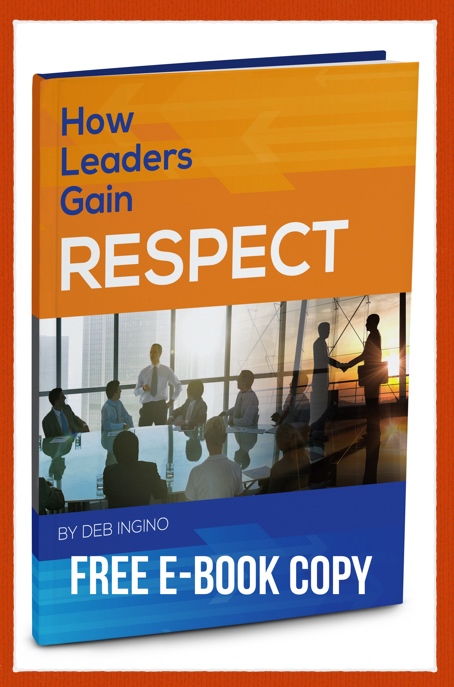
“Something doesn’t feel right. This work is draining my energy like a worn-out battery. The charge just won’t hold, and nothing I do gets me excited about my work anymore.”
“This job annoys me!”
“That person annoys me!”
“I think I need to find another line of work.”
“I hate my job.”
“I have that Sunday night pain in the stomach again.”
“Why can’t I make better headway on this project? It feels like quicksand.”
“I’ve been here much longer than him. In fact, I trained him to do his job when he first started, and I’ve had to cover for him when he has made mistakes. So why is he the one getting promoted?”
“I am concerned that my job may be next on the chopping block. Between artificial intelligence, the economy, and management decisions, I feel like I don’t stand a chance.”
“This isn’t right. But if I say something, I could lose my job.”
“I really don’t like working with that type of person. They are too (demanding, slow, analytical, disorganized).”
“That’s not what I said.”
“You didn’t tell me that.”
“I don’t like my boss.”
These are just some of the things your team members are saying and thinking. In my work with company teams and their leaders, I also hear the leader’s side.
“They are just not motivated to do the work that needs to be done.”
“My team members are constantly bickering. I feel more like a referee than a leader.”
“Why can’t they move faster and get more done?”
“We’re lagging on productivity. Last quarter’s results were anemic.”
“We’re getting complaints about quality and customer service.”
“Why can’t they just take initiative?”
“We’re failing to communicate, and balls are being dropped.”
“I don’t really like working with my employees.”
While these issues may seem to be disjointed, the fact is, they are quite closely connected. They are rooted in these four key relationships.
1. Relationship with Themselves
People are complicated and yet fascinating. We each come equipped with certain inherent strengths and weaknesses. Our talents, skills, and life experiences add layers to who we are, interwoven into the fabric of our being. When you hire an employee, you are hiring the entire person – all of these components in one package. You can’t just pick the strengths and leave out the weaknesses. You can’t just pick the positive life experiences and leave the bad ones outside the office door. People come in complex packages.
In the pressure cooker of modern business, where stress comes into play, people may exhibit sides of themselves even they didn’t know existed. They may experience anger, frustration, overwhelm, or confidence issues.
As a leader, it is your responsibility to know this and to expect it. The best leaders don’t just ensure the work gets done. They help employees grow through the process. Whatever your line of business, you are ultimately in the people development business.
Give your people the tools to know themselves and the other members of the team, and they will be able to better understand and work with all the behavioral variants in themselves and others.
2. Relationship with the Leader
The most respected leaders are those who have good relationships with their team members. In this day and age, leaders tend to exercise an abundance of caution when it comes to relationships. To a degree, this is certainly advisable. But a leader should be approachable, not aloof.
Take time to walk around the office and get to know each person. The next time you see them, mention something you remember from your last conversation. Simple questions like, “How’s your son doing with that broken leg?” “Did your daughter win the award?” or “Have you had that new boat out in the water yet?” go a long way toward building a relationship.
Why does this matter?
It goes back to the same methodology behind sales and marketing – the “Know, Like, and Trust” factor. If your people know and like you, they will learn to trust you; and trust is the foundation of all good relationships.
If they know, like, and trust you, they will also enjoy working with you. Given that the relationship with a boss is the number one reason people leave a position, it is worth your time to invest in a good working relationship.
3. Relationship with Others
Accomplishing major goals requires teamwork. And teamwork requires a high degree of respect for the strengths of each team member. It also necessitates an understanding that each person has weaknesses.
A majority of team issues could be resolved by simply addressing strengths and weaknesses. Think about it. Issues arise from jealousy over one person being recognized for their strengths, from a weakness in someone, or from a miscommunication between team members.
If you set the standard by helping your team understand the strengths of each person, and then honor each person when they apply those strengths, they will feel your favor is balanced and based on strengths-based performance, not on favoring one person over another.
Honor your team members by designating each as the “go-to expert” in a respective area of strengths. Give each one a chance to shine. Let them own their role.
Invest in helping your team learn how to communicate well across the introvert/extrovert divide that often exists. Help them communicate in a way that respects the other person’s style.
4 Relationship with the Organization
Do your people know your company’s mission, vision, and goals well enough to know their part and how it relates to the big picture? People want to work for a purpose, often well beyond a paycheck. They want to know that that the 40 or more hours they invest each week in your organization is meaningful, and that it serves humanity at some level.
This is especially true with Millennials and Baby Boomers. Though generations apart, they have the commonality of seeking to serve with purpose. Honor that within your organization.
Tie their role to the goal…and show them how what they do affects the people you serve.
One of the biggest reasons people leave the corporate world is to “find themselves,” which is to say, “find purpose in their work.” If you can offer them that opportunity within your organization…why would they ever want to leave?
Are you seeking to grow your organization? Develop these four relationship areas. The results could very well amaze you!
As the CEO of Strength Leader Development, Deb Ingino is a highly sought-after international executive mentor, coach, trainer and speaker. Deb is well versed in global business operations and helps business leaders and their teams to discover and leverage their strengths, so they can create highly collaborative teams that deliver great results. With a refreshingly direct style, Deb helps leaders and their teams to deliver profitable results. Connect with Deb to learn more about her mentorship and coaching programs to equip you with advanced strategies to elevate your results.
When you have a strong team that collaborates well,
you have a competitive advantage.
Click here to get instant access to the complimentary FREE e-book!

+ view comments . . .